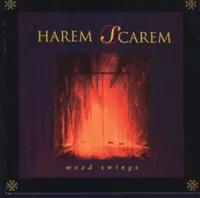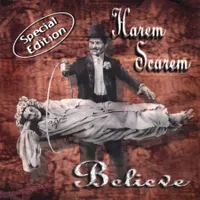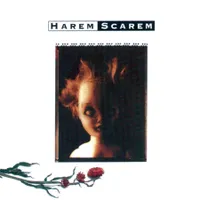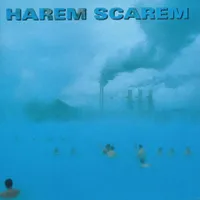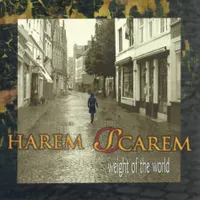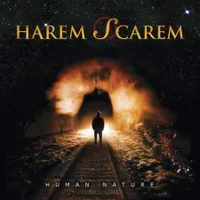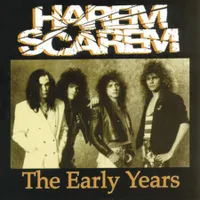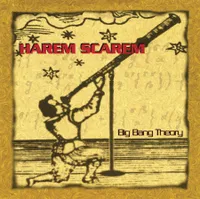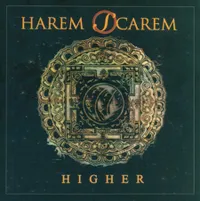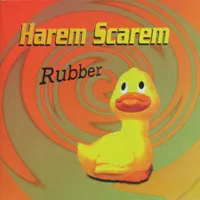"Possibly the most beautiful guitar instrumental of all time": The Harem Scarem albums you should definitely listen to
Big in Japan and beloved at home, Harem Scarem are a triumph of passion and polish

Harem Scarem made early inroads into Japan and their native Canada but have remained a cult act elsewhere, the success they deserved eluding them. Internationally stifled by the notorious WEA Canada label (see also Honeymoon Suite, Brighton Rock, Streetheart et cetera), they’ve nevertheless managed to craft a rich and varied discography.
Formed in 1987 by ex-Blind Vengeance singer Harry Hess and Minotaur guitarist Pete Lesperance, Harem Scarem was completed by bassist Mike Gionet and drummer Darren Smith. They recorded a demo CD which won the attention of Warner Bros in Canada, who signed the band in what was probably the last big multi-album deal for an act of its type in Canada.
They’ve released studio albums regularly since 1991, as well as numerous live albums and compilations for the Japanese market, with bassist Gionet leaving in 1995 to be replaced by ex-Blu Bones bassist Barry Donaghy.
After a brief dalliance with modern pop/rock for two CDs under the name of Rubber (Darren Smith was replaced by drummer Creighton Doane on the second Rubber album), they returned to the Harem Scarem moniker after signing a European deal with the UK/Italian label Now & Then/Frontiers in 2001.
Several more studio albums followed until 2008, when Harry Hess and Pete Lesperance – who had become in-demand producers and session musicians – felt that they’d taken the band as far as they could.
Unexpectedly, the band re-formed in 2012, re-recording their classic 1993 Mood Swings album and booking a world tour, including their third appearance at the annual Firefest festival in the UK. Enlisting well-travelled bassist Stan Miczek (later replaced by Mike Vassos) and re-uniting with original drummer Darren Smith (who had continued to record backing vocals with the band), Harem Scarem were back, and they've been back ever since, with a 30th anniversary edition of Mood Swings released in 2023.
If you’re unfamiliar with the band, then here’s what any self-respecting melodic rock fan should own (and avoid!).

The jewel in the Harem Scarem crown, their second album covers all bases with the classy vocals, scintillating guitar, and layered harmonies that would become the band’s hallmarks.
From the hard rocking Saviours Never Cry and multiple tempos of No Justice and Change Comes Around, to the AOR-tastic Sentimental Blvd and punchy Empty Promises, this album is a smorgasbord of greatness. Throw in the Van Halen-esque Had Enough, the a cappella Just Like I Planned and possibly the most beautiful guitar instrumental of all time (Mandy). What’s not to love?
Believe (Special Edition) (Warner Music Japan, 1997)
Compiling the tracks from Canadian album Karma Cleansing and the Japanese version, Believe, Harem Scarem’s fourth album offered some big rockers like Die Off Hard, Hail, Hail and Staying Away (a new recording of an old demo track with Smith on vocals), a few modern sounding tracks and a great Lesperance guitar instrumental.
The album also features a full band version of the superb ballad Rain and the simply wonderful Karma Cleansing. An exciting mix of where they have been, and where they were going.
The debut album has great songs for sure: the soaring Hard To Love, the infectious Slowly Slipping Away, the beautiful Honestly and the wonderful With A Little Love, featuring contributions from members of Honeymoon Suite, Coney Hatch and Haywire.
It’s probably their most melodic album, but fails to get into our top spots because the band’s initial vision had been compromised and the demos had much more potency to them. The use of uncredited session musicians further diluted their sound, but as an album of well-written songs it still stands up.
Initially disliked by many fans and certainly not their most immediate release, Voice Of Reason was Harem Scarem’s most deep and meaningful statement, and once you get used to the heavier riffs and darker melodies, there’s beauty in them there grooves.
Imagine the more off-the-wall Queen songs played by Jellyfish. The quirkiness of the single Blue, the strangeness of And That’s All and the almost punky The Paint Thins are tempered by the glorious Let It Go, the clever Warming A Frozen Rose and Necessary Evil’s bluesy pop vibe. Buy it now, and play it regularly.
Weight Of The World (Now & Then/Frontiers, 2002)
The album that brought Harem Scarem back to layered harmonies, melodic riffs and guitar solos, Weight Of The World is also one of their more diverse sets, offering the multi-textured title track, catchy pop-rockers Killing Me, If You and You Ruined Everything, and the histrionics of Voice Inside, just for starters.
Harry’s love of Queen is evident on This Ain’t Over, while the likes of Outside Your Window is Harem Scarem at their most inventive and irresistible (goosebump guitar solo alert!). The album also marked a return to a cleaner production.
Human Nature (Vespa Music Group, 2006)
The most melodic of their later albums, Human Nature has a little less variety than the others, but it’s also very upbeat and consistent. The title track, Next Time Around and Caught Up In Your World make for a particularly strong opening trio with hooks all over the place, while Hanging On is a great ballad.
The Queen worship rears its head again on Get Love/Give Love, while Tomorrow May Be Gone features sublime guitar, soaring vocals and a nice summery vibe. One of their most accessible albums, even if it lacks extreme highs.
The Early Years (Frontiers, 2003)
Although sonically inferior to the rest of their catalogue, The Early Years consists of the original 1988 10-track demo that got them their first record deal, along with six other bonus tracks, cleaned up for release by Harry Hess when he saw the original on eBay for almost $1,000.
It contains the original versions of their most popular ballad Honestly and Believe’s Staying Away, along with other collectables like One Of The Wounded, Out Of Love and the Japanese bonus track from Weight Of The World, End Of Time, which sounds huge compared to the basic demos.
This is a confusing one as there are actually two Canadian versions and two Japanese versions of the group’s fifth album, so if you’re minted get the Japanese limited edition with all the tracks on.
Otherwise, the original Canadian release is the best, as it has Without You and New Religion, two of the best songs from this era. It’s another heavy and varied album with powerful rockers like So Blind and Climb The Gate and the hypnotic In My State Of Mind, but like Voice Of Reason it takes a while to fully appreciate its untypical vocals and guitar tones.
One of their more accessible albums, Harem Scarem’s ninth LP Higher is just clever enough to not be a dated rock album, and melodic enough not to alienate AOR fans with sensitive ears.
A lot of the songs have low-key verses that burst into a big chorus at the earliest opportunity. Waited, Torn Right Out and Lucky Ones are the instants, Gone is a gem of sparkling ideas and Higher is possibly the best of the lot. What initially seemed like a disappointing follow-up to Weight Of The World turns out to be thirty-seven minutes of enjoyable pop/rock.
...and one to avoid
You can trust Louder
Hess and Lesperance have never made a genuine ‘avoid’ contender, but the simpler song construction, sparse production and lack of guitar solos on this album, intended to relaunch their career, was as near as they got.
Songs like Who-Buddy and Sunshine have a certain charm, but the different Canadian and Japanese versions were beginning to get out of hand by this time. Perhaps a better ‘avoid’ would be the numerous Japanese compilations with one new song, or one of the live albums released after every tour? Incidentally, the second Rubber album was much better.
Sign up below to get the latest from Classic Rock, plus exclusive special offers, direct to your inbox!
